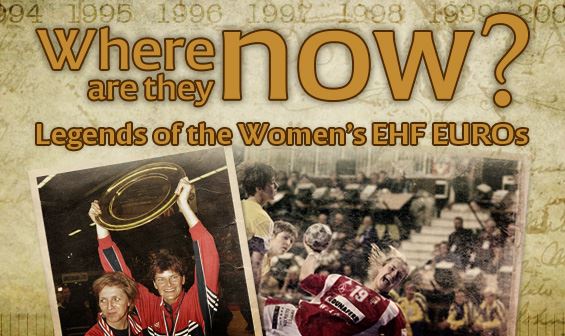

Ulrik Wilbek: "1994 was the year we learned to win"
Ulrik Wilbek: "1994 was the year we learned to win"
1994. The first Women’s EHF EURO in history had come to its end.
On 25 September the final took place in Berlin, and hosts Germany, also the reigning world champions at that time, faced Denmark.
It was actually the re-match of the World Championship Final which Germany had won 22:21 after extra time the year before.
Hence it was time for revenge for Denmark – and they eventually succeeded, beating Germany 27:23 despite and becoming the first female champions of Europe.
It was the first international title for a Danish women’s national team. Many more were to come in the years that followed.
It was also Ulrik Wilbek’s first title as national coach. And even more victories would follow for him. First with the women’s, then with the men’s national team.
From 2005 to 2014 Wilbek was the head coach of the Danish men’s national team. He led the team to gold at the EHF EURO events in 2008 and 2012 and to the World Championship Finals in 2011 and 2013.
In June this year he left the coaching bench and started a new career as the Danish Handball Federation’s sports director.
But back to 1994 and the EHF EURO:
“What I remember most from that triumph 20 years ago is actually the national anthems before the final.
”Our fans sang our national anthem considerably louder than the German spectators sang theirs.
”That caused a certain surprise in the hall, but it was just typical for those years – we were on home ground no matter where we played. Our players had been the darlings of the nation ever since the world championship the year before, and we received fantastic support everywhere we went,” Ulrik Wilbek tells ehf-euro.com.
“I also remember a quite amusing episode from that final. The Dutch referees warned med that our key player Anja Andersen might get a red card, so when she actually did, I was prepared and had instructed another of our back court players, Anne Dorte Tanderup to take over Anja’s role in the team. That worked out just fine,” he recalls.
The beginning of a golden era
In the following ten years Denmark became European champions twice more (1996 and 2002), Olympic champions three times in a row (1996, 2000, 2004) and world champions once (1997) – and according to Wilbek this was no coincidence.
“1994 was the year we learned to win. After we had come so close at the World Championship in 1993, we won a tournament (the EHF EURO 1994) and proved to ourselves that were capable of winning titles.
”We had a lot of great players at that time, and all they needed was this confirmation that they could win,” says Ulrik Wilbek who is reluctant to take much credit for the triumphs himself.
“I only saw myself as a part of the team, and we simply had a great team in those years, and at a certain time we were the holders of all three major international titles (Olympic Games, World Championship and European Championship) We simply had a great winning mentality,” he says.
The golden years for Denmark’s handball women ended with the Olympic gold medal in Athens in 2004.
Since then, the national team has not topped the podium at any major tournament, but at the World Championship in Serbia last year, the medal drought finally came to an end when Denmark won bronze.
And Ulrik Wilbek does not rule out the chance of another golden era.
”We have a lot of great players these again days and a lot of young talents on the way. In general, the Danish league clubs can no longer afford so many internationals stars, as they once could.
”This may mean that Danish teams do not win the (Women´s EHF) Champions League anymore, but it is good for the young talents who get the chance in the league in the first Division.”
”The bronze medal last year has given us every reason to be optimistic, and I expect a very close European Championship next month, where I see many teams having the chance to win the title, and Denmark are definitely among them.
“If you can win bronze, you can also win silver, and if you can win silver, you can also win gold,” he says.
The countdown clock to the Women's EHF EURO 2014 continues to tick down.
While the participating teams and its star players start getting in shape for the final tournament, we use the opportunity to look back at the stars from yesterday. The players that stood and occasionally still stand for success at the previous EHF EURO events.
Part 3: Hungary's Lajos Mocsai, the coach who steered Hungary to gold at the Women's EHF EURO 2000
Part 4: France's Stephanie Cano, who recalls her memories about the Women's EHF EURO 2002






